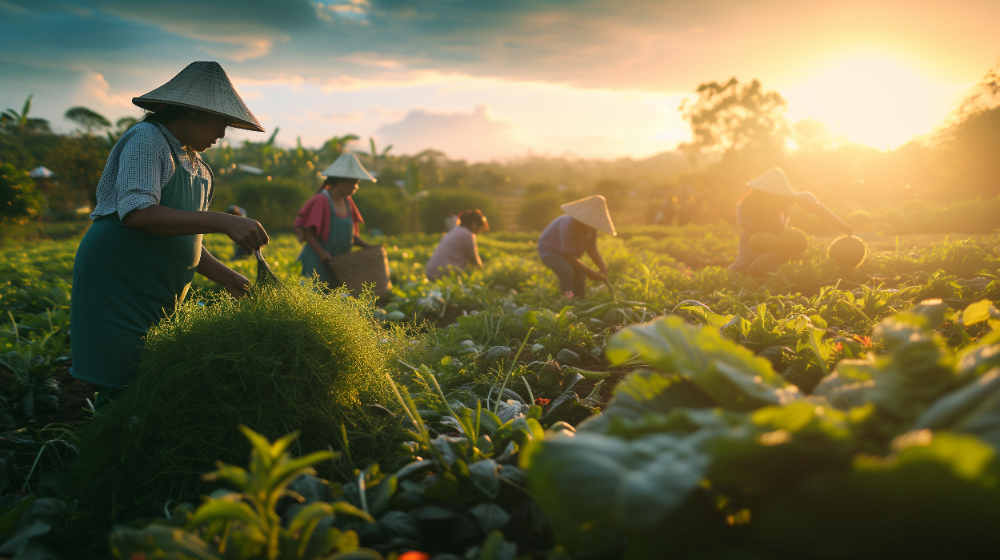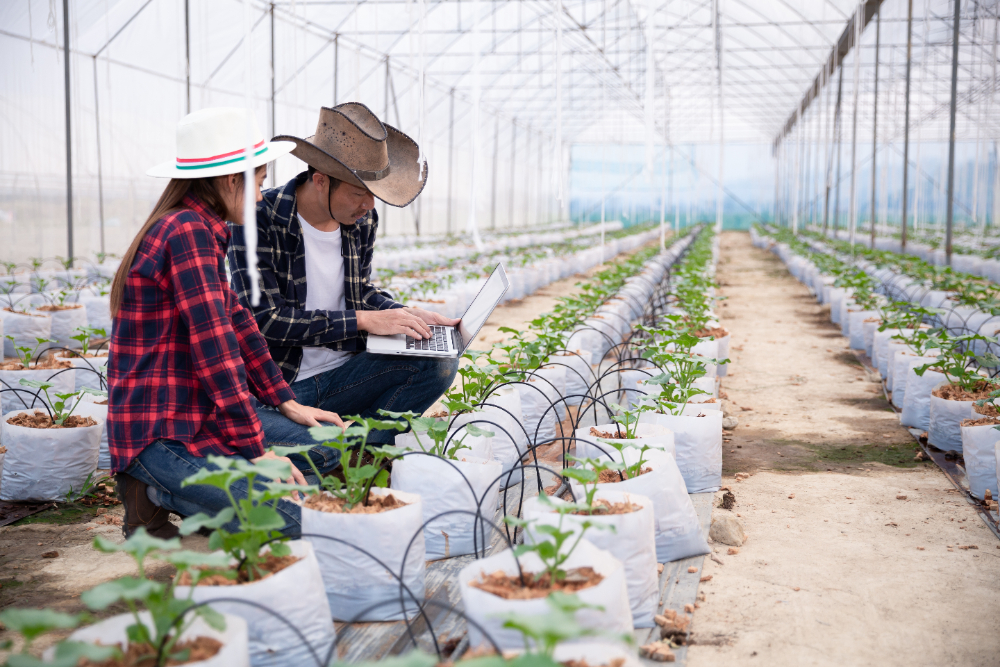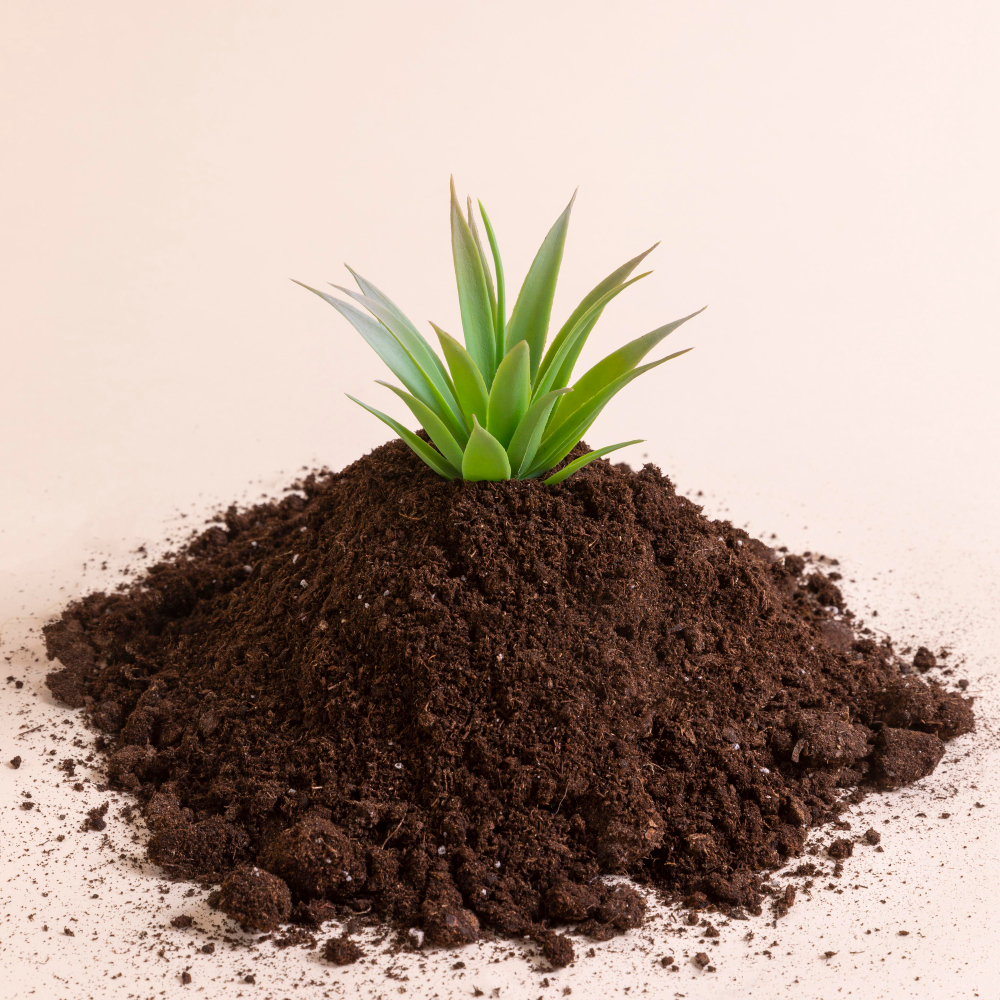
Tips to Increase Crop Yield During the Dry Season
The dry season often presents challenges for agricultural cultivation, especially in areas with limited water and crops that require a consistent water supply. However, with the right tips and methods, you can still increase crop yield even during drought conditions. This article will share helpful tips to optimize crop yield during the dry season.
1. Apply Water-Saving Irrigation Methods

During the dry season, providing sufficient water for crops is crucial. However, without proper irrigation techniques, water usage can be wasteful. Drip irrigation and automatic irrigation systems are excellent solutions to save water while ensuring crops receive enough water.
Benefits of Water-Saving Irrigation:
-
Minimizes water wastage.
-
Delivers precise amounts of water to crops, avoiding overwatering or underwatering.
-
Saves time and effort for farmers.
2. Choose Drought-Resistant Crop Varieties

Selecting crop varieties suited to dry-season conditions is an important factor for increasing yield. Drought-resistant crops have the ability to thrive in limited water and high temperatures. Choosing the right varieties will help reduce risks and improve production efficiency.
Some drought-resistant crops include:
-
Corn, potatoes, green beans, tomatoes.
-
Fruit trees like mango, banana, guava.
3. Use Organic Mulch and Fertilizers
Organic mulch and fertilizers improve soil fertility, retain moisture, and provide nutrients to crops. Adding organic mulch to the soil helps the soil retain moisture for longer and enhances the drought resistance of crops. Additionally, organic fertilizers promote strong and healthy plant growth, boosting yield.
Benefits of Organic Mulch and Fertilizers:
-
Retains moisture in the soil for an extended period.
-
Improves soil structure, helping crops grow better.
-
Increases plant resistance to pests and diseases.
4. Mulch the Soil Surface

Covering the soil with a layer of organic mulch or straw helps reduce evaporation, retain moisture, and lower soil temperatures. This is particularly important during the dry season when the soil tends to dry out. Mulching not only supports steady plant growth but also reduces weed growth.
Benefits of Soil Mulching:
-
Retains moisture in the soil.
-
Lowers soil temperature and protects plant roots.
-
Reduces weed growth.
5. Adopt Sustainable Agriculture Practices
Sustainable agriculture not only helps increase crop yield but also protects the environment. Applying organic farming methods, using minimal pesticides, and taking a natural approach to crop care will produce high-quality products and ensure long-term soil and water sustainability.
Benefits of Sustainable Agriculture:
-
Minimizes environmental impact.
-
Produces safe agricultural products free from harmful chemicals.
-
Strengthens soil health and conserves water resources.
6. Plan Irrigation and Nutrient Supply Properly

Proper irrigation planning and nutrient management during the dry season are essential for healthy crop growth. You need to determine the right timing and water quantity to prevent drought stress or waterlogging. Additionally, providing nutrients at the right times will ensure that crops grow strong and increase yield.
7. Control Pests and Diseases
In the dry season, crops may face pest and disease problems due to hot and dry conditions. Therefore, it is essential to regularly monitor and prevent pests. Using biological control methods or applying pesticides judiciously will help keep plants healthy, leading to increased yield.
Conclusion
The dry season is not a major obstacle if you know how to apply the right methods to increase crop yield. By using water-saving irrigation techniques, choosing drought-resistant crop varieties, and managing crops scientifically, you can achieve high productivity in agricultural production. Apply these tips to ensure a bountiful harvest even during dry conditions!
Bình luận
Những bình luận mới nhất



